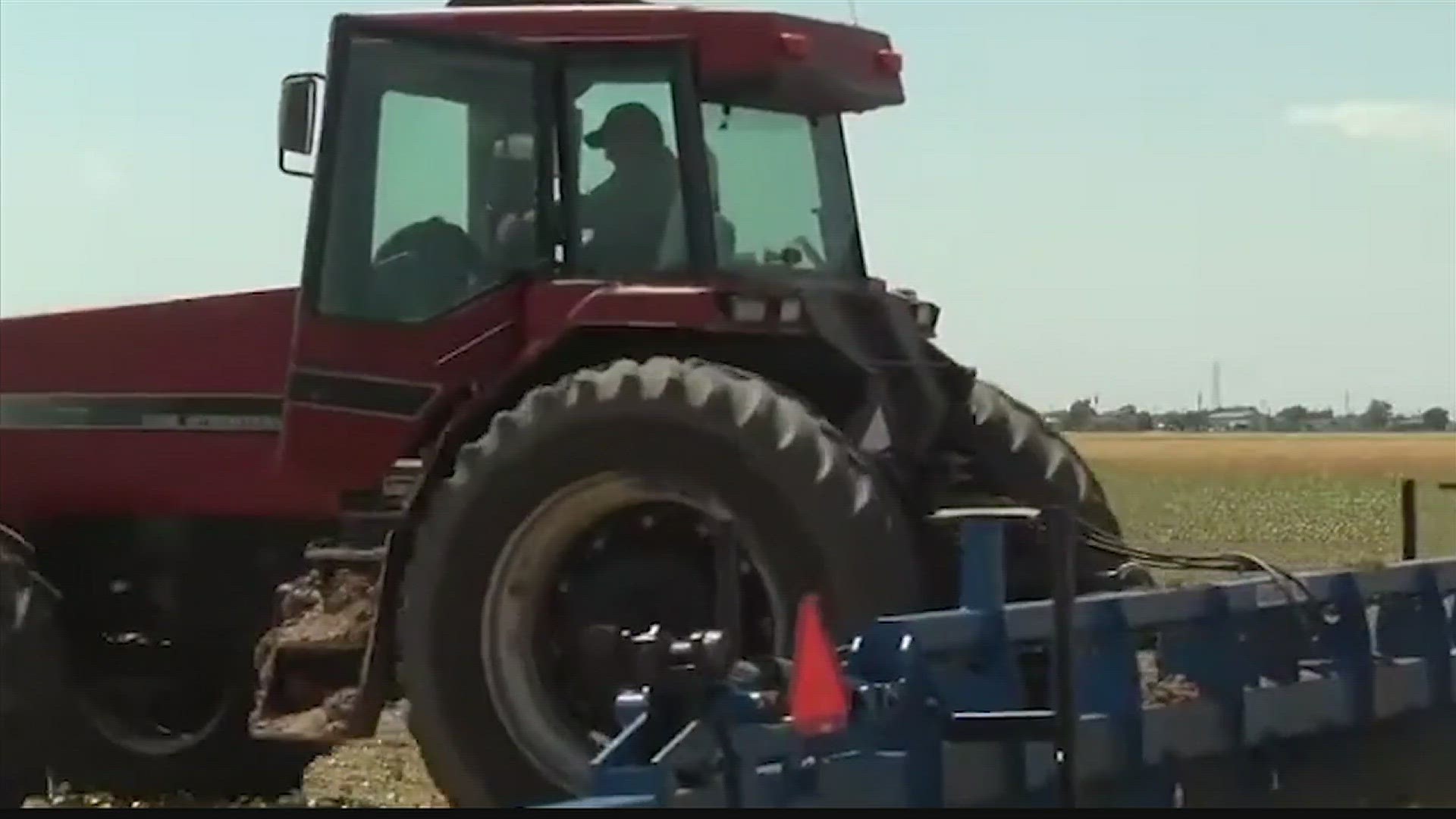HUNTSVILLE, Ala. — In some parts of the U.S., farmland values fell by half in the early 1980s. Alabama wasn’t hit to that level but still saw declining land values. Commodity prices plummeted, too. "Back in the '80s, interest rate was 18%. That was probably the toughest ten-years in farming that I have experienced," Phillip Thompson of Thompson Farms said.
Decades later, farmers again face rising inflation, coupled with supply chain issues. Farmers report fertilizer and crop protection prices have doubled, tripled or even quadrupled — when available. "Fertilizer was $900+ a ton last year, so we just cut back," Thompson said. "We are going to be playing catch up by missing a year but, you do what you gotta do to stay in business."
In 2021, Alabama generated around $6.0 billion in agricultural cash receipts with the highest valued commodities being broilers, chicken eggs, and cattle and calves. "Alabama's gross cash receipts from just gross revenue from farming was almost $7 billion," Jared Daniels of Alabama Cooperative Extension System said. "There's around 38,000 farm operations in Alabama, farming 8 million acres."
With that amount of acreage and rising costs, it can get pretty tough to maintain. "There's a lot of different types of farm operations so their costs are all going to be a little bit different," Daniels said. "Feed, fuel, fertilizer, seed, labor can be a huge expense."
Even with all the expenses, Thompson remains optimistic. "Interest rates are cheaper, our input costs are extravagantly high, crop commodity prices are up compared to what they were back then, and we still have the potential to make a profit."
The Farm Bill, which is a multiyear law that governs an array of agricultural and food programs and also provides an opportunity for policymakers to comprehensively and periodically address agricultural and food issues ending in September, Daniels says the changes could be key. "Congress right now is holding listening sessions to determine what changes, if any changes should be made to the current farm bill," he said. "The farm bill right now is about 85% nutrition and 15% resources for farmers. So very, very important legislative topic right now."

